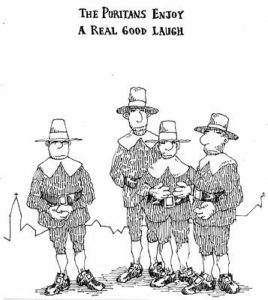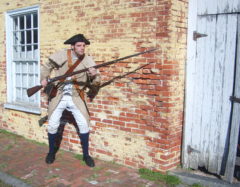Kropf, Carl R. “The Nationalistic Criticism of Early American Literature.” Early American Literature 18.1 (1983): 17-30. JSTOR. Web. 13 September 2016.
The purpose of Kropf’s essay is to examine how early American literature was perceived and studied at different moments in history. He begins by noting that two major critical traditions dominated the study of early American literature from the onset: ECLECTIC and NATIONALISTIC approaches. The scholars who transmitted the eclectic approach were often in the minority, for they felt that any writing formulated within the colonies should be considered American writing; however, nationalistic scholars were apt to believe that the only writing that qualified as truly American was writing that was defined as having a foundation in patriotism, anticipating a national movement, or contributing to a newfound national identity (17-18). While these two critical sides bickered, there was still very little study of literature in America occurring, for many scholars believed, “Eighteenth-century literature was not literary in any meaningful sense; that is, was not original, romantic, or especially ‘expressive’ in nature” (18). Since this was the case, reading was not the dominant force in early American colleges either; in fact, as Thomas P. Miller writes in The Evolution of College English, colonial colleges rarely had books at all, and the focus between the 1740s and the American Revolution was on drafting persuasive compositions (16).
This is definitely logical, since many examples of early American/Revolutionary literature tend to be political in nature, and while they don’t focus on entertainment, they are certainly informative or persuasive. This continues to be the case in public high schools where some teachers articulate the importance of Puritan literature, slave narratives, and Revolutionary documents/oratories. Nevertheless, even these studies often lack any aspect of entertainment, which is probably one major factor in why the area of study took so long to grow in America. As Kropf attests, American literature continues to be an unpleasant experience for students, “It seems unlikely that many modern students ever reread Puritan sermons for the fun of it” (23). As an 11th grade English teacher, I can completely understand Kropf’s sentiments, for it can often seem impossible to make the stringent Puritan culture relatable or entertaining to modern-day students, many of whom have never been to church once.

Overall, Kropf writes that the burgeoning of American literary studies really didn’t gain any steam until the 1940s; in fact, he writes that it was mostly “ignored as a respectable subject of scholarly inquiry” (19). Meanwhile, another factor contributing to the difficulties associated with a framework for American studies was early American literature’s distinctiveness. “American literature, in contrast and uniquely among national literatures, defines itself according to geographical and political criteria” (21). If this isn’t enough, problems arising from historical standpoints also created a hazy mode of early American study. According to Kropf, in reference to many early studies of early American literature, “the typical treatment of early American literature is reminiscent of the treatment accorded the Old Testament in studies of typology,” and he notes that “the entire nationalistic approach to early American literature has generated a body of criticism that is dominated more by the muse of history than by the must of literature” (22). This lack of an aesthetic approach definitely hindered many potential scholars of literary study from seriously investigating and delving into early American literature for over two centuries.
Additional Sources:
Miller, Thomas P. The Evolution of College English: Literacy Studies from the Puritans to the Postmoderns. Pittsburgh: University of Pittsburgh Press, 2011. Print.
*To view the full text version of Kropf’s essay, click the link below (ODU login will be necessary):
http://www.jstor.org.proxy.lib.odu.edu/stable/pdf/25056493.pdf
